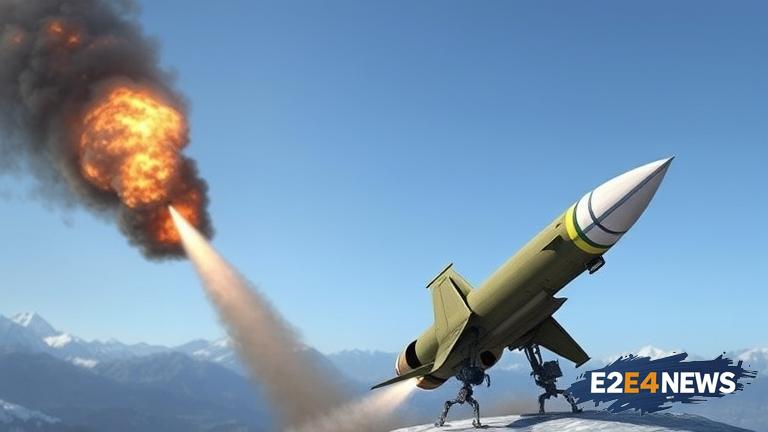In a significant development, Russia has declared that it is no longer bound by the moratorium on the deployment of Intermediate-Range Nuclear Forces (INF) missiles. This move comes as a response to what Russia perceives as a growing threat to its national security, particularly from the United States and its allies. The INF Treaty, signed in 1987, banned the development, production, and deployment of ground-launched missiles with ranges between 500 and 5,500 kilometers. However, the treaty was formally scrapped in 2019 after the US withdrew, citing Russian non-compliance. Since then, Russia has maintained a voluntary moratorium on deploying INF missiles, but this has now been lifted. The decision is seen as a major escalation in the ongoing tensions between Russia and the West. Russian officials have stated that the country needs to take measures to ensure its security in the face of potential threats from the US and its allies. The US has been accused of deploying missile defense systems in Eastern Europe, which Russia sees as a direct threat to its security. In response, Russia has been developing new missile systems, including the 9M729 missile, which the US claims is in violation of the INF Treaty. The Russian military has also been conducting exercises and drills to test its readiness in the event of a conflict. The withdrawal from the INF moratorium is likely to have significant implications for global security, particularly in Europe. The move is expected to lead to an increase in tensions between Russia and the West, and could potentially spark a new arms race. The US and its allies have condemned Russia’s decision, stating that it undermines global security and stability. However, Russia maintains that it is taking necessary measures to protect its national interests. The development has also sparked concerns about the potential for a new Cold War, with some analysts warning that the world is entering a new era of great power competition. The Russian government has stated that it is willing to engage in diplomatic efforts to resolve the issue, but it is unclear whether a resolution can be reached. The US and its allies have called on Russia to reverse its decision and return to the negotiating table. The situation remains volatile, with both sides engaging in a war of words and diplomatic maneuvering. As the situation continues to unfold, it remains to be seen how the international community will respond to Russia’s withdrawal from the INF moratorium. The move is likely to have far-reaching consequences, not just for Russia and the US, but for global security as a whole. The international community is watching with bated breath as the situation continues to develop. In the meantime, Russia is expected to continue developing its military capabilities, including its missile systems. The country has also been strengthening its alliances with other nations, including China and Iran. The US and its allies are likely to respond with their own military build-up, potentially leading to a new era of great power competition. The world is holding its breath as the situation continues to unfold, with many wondering what the future holds for global security.





